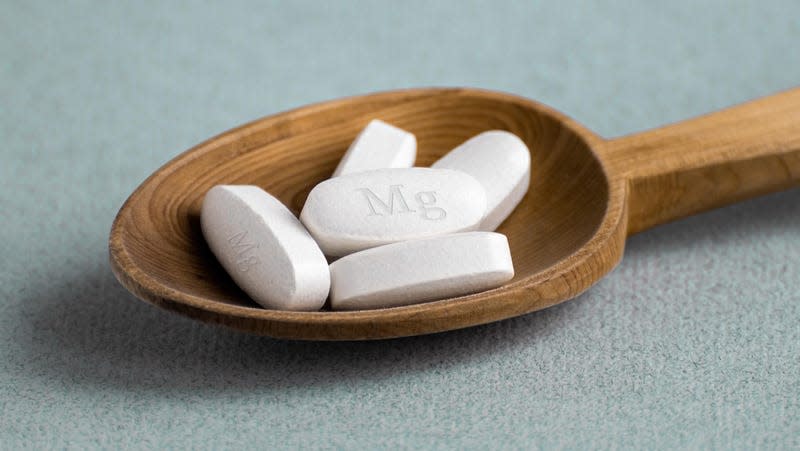Magnesium Supplements Could Protect Your Liver From Acetaminophen

Magnesium supplements might be able to blunt a well-known side effect of the painkiller acetaminophen, new research suggests. The study found evidence in lab animals that oral magnesium can prevent acetaminophen-related liver damage by affecting the gut microbiome. More research will be needed to confirm this potential protective benefit, however.
Acetaminophen, either taken alone or in combination with other drugs, is one of the most widely used medications in the world. Sold generically and under the popular brand name Tylenol, it can alleviate fever and mild to moderate pain. But too much acetaminophen over a short period of time can cause acute and even life-threatening liver injury. It’s thought to be the leading cause of acute liver failure in the U.S, with an estimated 56,000 emergency room visits, 26,000 hospitalizations, and 500 deaths attributed annually to the drug, according to a 2005 study.
Read more
Tesla Cybertruck Steel Body Raises A Lot Of Questions About Insurance And Repair Costs
Report: Bungie Will Lose Independence Within Sony If Destiny 2 Fails Financial Goals
The First Hours Of Ubisoft’s New Avatar Game Are Gorgeous, Fun, And Empty
Cyberpunk 2077's Romance Update Is Sweet, But Underlines A Big Problem
Oregon just got hit with a Title IX lawsuit and the allegations are rough
Across these tests, the team found evidence that magnesium can prevent acetaminophen-related liver damage by inducing metabolic changes in the gut microbiome. Specifically, oral magnesium seemed to stimulate the metabolism of gut bacteria called Bifidobacterium, leading to increased levels of a compound called indole-3-carboxylic acid (I3C), which then bound to and inactivated CYP2E1.
“We provide a valuable approach, oral magnesium intake, as a potentially safe and effective strategy to prevent CYP2E1-mediated [acute liver failure],” the authors wrote.
The findings are largely limited to animals, so they’re not proof that people can just take magnesium supplements to keep themselves safe from a potential acetaminophen overdose. And it’s too early to know if its protective effect could be easily applied to everyone, since different people and their microbiomes might respond in different ways to magnesium.
But the results do offer some intriguing new avenues for research, the team says. Finding a way to boost levels of Bifidobacterium or I3C even without magnesium could help prevent acute liver injury from acetaminophen, for instance. And since CYP2E1 is also thought to be involved in other kinds of liver failure, such treatments could have more applications beyond making acetaminophen safer.
In any case, the authors say that “more experiments with an expanded spectrum of human subjects are required in the future.”
More from Gizmodo
GTA 6 Trailer Packed With Moments Inspired By Actual Florida Shenanigans
Taylor Swift feels like she was canceled. Is that even true?
Sign up for Gizmodo's Newsletter. For the latest news, Facebook, Twitter and Instagram.

